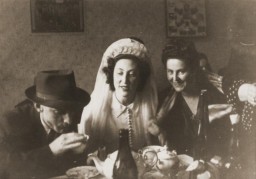You searched for: 真人牌九游戏,推牌九游戏,牌九游戏网站,【游戏地址∶22kk33.com】牌九规则,牌九技巧,牌九口诀,牌九游戏,牌九怎么玩,牌九扑克,牌九大小顺序图解【博彩大厅∶22kk33.com】网址ZBBf0DBkEgCA000D
<< Previous | Displaying results 21-30 of 242 for "真人牌九游戏,推牌九游戏,牌九游戏网站,【游戏地址∶22kk33.com】牌九规则,牌九技巧,牌九口诀,牌九游戏,牌九怎么玩,牌九扑克,牌九大小顺序图解【博彩大厅∶22kk33.com】网址ZBBf0DBkEgCA000D" | Next >>
-
Refugees in the Soviet Union
PhotoSoviet refugees sit around a fire in a makeshift camp, following the German invasion of Soviet territory on June 22, 1941. Soviet Union, between 1941 and 1944.
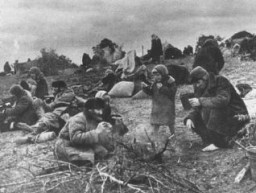
-
Round up in the Jewish quarter of Amsterdam
PhotoGerman police round up Jews in the Jewish quarter of Amsterdam, blockaded following anti-Nazi violence. Amsterdam, the Netherlands, February 22, 1941.
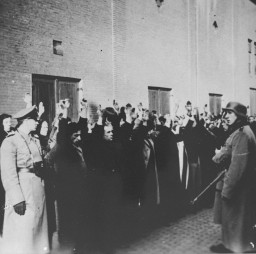
-
German Jews hoping to emigrate to Palestine
PhotoGerman Jews trying to emigrate to Palestine form long lines in front of the Palestine and Orient Travel Agency. Berlin, Germany, January 22, 1939.
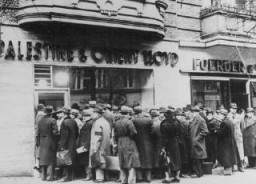
-
View of the furnaces remaining in the Majdanek camp by the time of liberation
PhotoView of the furnaces remaining in the Majdanek camp by the time of liberation. The Germans had attempted to destroy the building as Soviet forces advanced in 1944. Majdanek, Poland, after July 22, 1944.
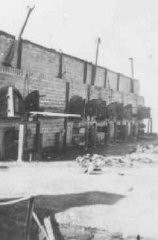
-
Jan Karski and General Colin Powell
PhotoJan Karski and General Colin Powell meet during the opening ceremonies of the US Holocaust Memorial Museum. Washington, DC, April 22, 1993.
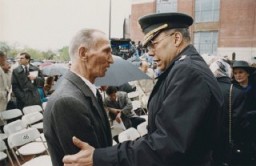
-
Aerial view of the Nuremberg Palace of Justice
PhotoAerial view of the Nuremberg Palace of Justice, where the International Military Tribunal tried 22 leading German officials for war crimes. Nuremberg, Germany, November 1945.
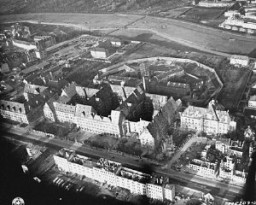
-
SS female auxiliaries
PhotoSS female auxiliaries show with mock sadness that they have finished eating their blueberries, July 22, 1944. From the Hoecker Album of 116 photographs taken during the last six months of Auschwitz, between June 1944 and January 1945.
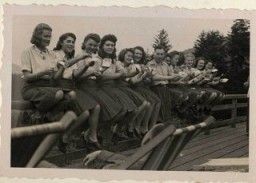
-
Deportation from the Siedlce ghetto
PhotoJewish women and children are transported by horse-drawn wagon during a deportation action in the Siedlce ghetto. During the liquidation of the ghetto on August 22-24, 1942, 10,000 Jews were deported to the Treblinka killing center.
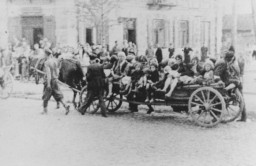
-
Amalie Petranka (later Salsitz)
PhotoAmalie Petranka (later Salsitz) at 22 years of age. She gave this photo to Norman Salsitz shortly after they met. Photograph taken in Stanislawow, Poland, on October 10, 1939.
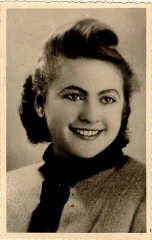
-
Wedding in the Bad Reichenhall displaced persons' camp
PhotoPhotograph taken during the wedding of Ibby Neuman and Max Mandel at the Bad Reichenhall displaced persons' camp. Germany, February 22, 1948.
